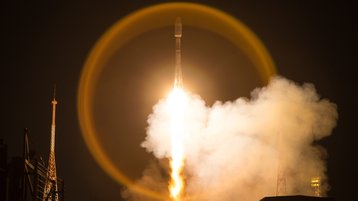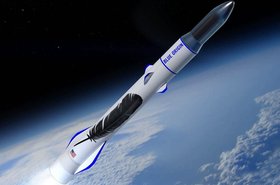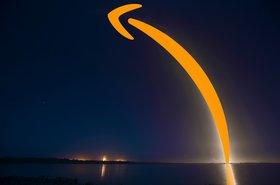The British government is reportedly seeking to acquire a 20 percent stake in bankrupt satellite operator OneWeb.
The company filed for Chapter 11 bankruptcy in March, in part due to Covid-19 exacerbated economic troubles - made worse when backer SoftBank pulled out of a $2bn funding round. It currently has 74 satellites in orbit, but planned to launch 650.
NoneWeb
Britain on Friday bid $500 million (£402m) for a fifth of the company, alongside a consortium of private investors, in a move signed off by Prime Minister Boris Johnson and Chancellor of the Exchequer Rishi Sunak - and spearheaded by controversial chief advisor Dominic Cummings.
The news has yet to be officially confirmed, but was first reported by The Times and corroborated by other British news outlets.
The bid comes after the UK lost access to Europe's Global Navigation Satellite System, Galileo - a rival to the US GPS system.
After pumping £1.2bn ($1.47bn) into the project, the UK was locked out of Galileo when it left the European Union. One of the system's two Security Monitoring Centres was based in Hampshire, but that has now been moved to Spain.
The UK then spent another £90m ($111m) investigating the possibility of building its own Galileo competitor, before balking at the ultimate £5bn ($6.3bn) cost. Now it seems to think that the answer lies in OneWeb - but several experts aren't so sure.
“The fundamental starting point is, yes, we’ve bought the wrong satellites,” Dr. Bleddyn Bowen, a space policy expert at the University of Leicester, told The Guardian. “OneWeb is working on basically the same idea as Elon Musk’s Starlink: a mega-constellation of satellites in low Earth orbit, which are used to connect people on the ground to the Internet.
“What’s happened is that the very talented lobbyists at OneWeb have convinced the government that we can completely redesign some of the satellites to piggyback a navigation payload on it. It’s bolting an unproven technology on to a mega-constellation that’s designed to do something else. It’s a tech and business gamble.”
GPS, Galileo, as well as Russia’s Glonass and China’s BeiDou, all operate in medium Earth orbit at around 20,000km. OneWeb operates in low Earth orbit, at 1,200km.
There's another hurdle to overcome - while the company is headquartered in the UK, and has spectrum rights registered in the UK through Ofcom, it manufactures its satellites in the US using American technology in a joint venture with Airbus.
Audrey Strauss, the acting US attorney for the Southern District of New York, wrote in a legal filing that the US government may review any potential foreign acquisition of OneWeb, The Telegraph notes. The Committee on Foreign Investment in the United States has the power to block such acquisitions - and, while the UK government would be whitelisted, it is not clear whether other members of the consortium would be.
Other offers
In addition to the UK-backed consortium, other bids are thought to include three different Chinese consortia, French investors, SpaceX, and Amazon.
During bankruptcy, OneWeb filed with the FCC for the ability to launch 48,000 satellites - massively up from its 650 plans. Ronald van de Breggen, who worked for LeoSat before it too went bankrupt, notes that the expansion of the filing could have been made to help court Amazon - which plans to send thousands of satellites into space as part of Project Kuiper, but is behind on its own FCC filings.
"The company may in OneWeb have the solution to that big market access headache," he wrote.
Bids closed on Friday for an initial round of assessment. If there’s no clear winner according to the US bankruptcy court judge and OneWeb’s creditors, an auction will be held on July 2. Industry analysts at SpaceIntelReport claim that the UK offer is currently in the lead.




